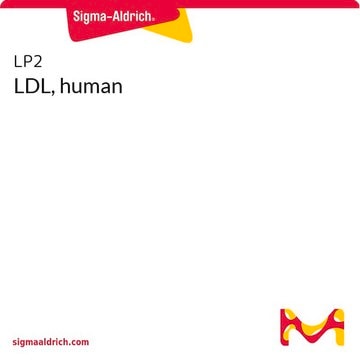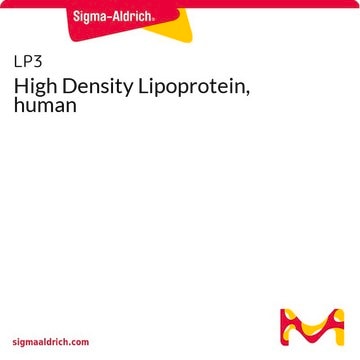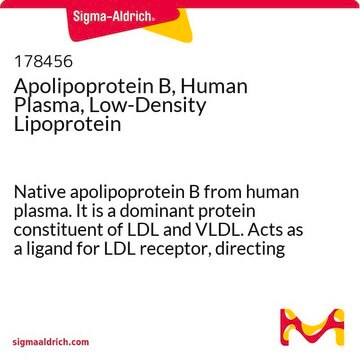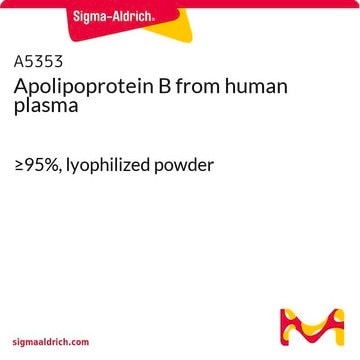L8292
Lipoprotein, low density from human plasma
lyophilized powder
Synonyme(s) :
β-Lipoprotein, LDL, Low density lipoprotein
About This Item
Produits recommandés
Source biologique
human plasma
Niveau de qualité
Forme
lyophilized powder
Conditionnement
vial of ~5 mg protein
Technique(s)
cell culture | stem cell: suitable
Numéro d'accès UniProt
Température de stockage
2-8°C
Informations sur le gène
human ... APOA1(335)
Vous recherchez des produits similaires ? Visite Guide de comparaison des produits
Description générale
Application
- in evaluating its anti-Langerhans cells (LC) differentiation activity in monocyte-derived Langerhans cells (MDLCs)
- in the preparation of oxidized low-density lipoprotein (ox-LDL)
- as a lipoprotein standard in quantifying embryonic cerebrospinal fluid (eCSF) from HH23 embryos by lipid staining
Actions biochimiques/physiologiques
Propriétés physiques
Notes préparatoires
Clause de non-responsabilité
Code de la classe de stockage
11 - Combustible Solids
Classe de danger pour l'eau (WGK)
WGK 3
Point d'éclair (°F)
Not applicable
Point d'éclair (°C)
Not applicable
Équipement de protection individuelle
Eyeshields, Gloves, type N95 (US)
Certificats d'analyse (COA)
Recherchez un Certificats d'analyse (COA) en saisissant le numéro de lot du produit. Les numéros de lot figurent sur l'étiquette du produit après les mots "Lot" ou "Batch".
Déjà en possession de ce produit ?
Retrouvez la documentation relative aux produits que vous avez récemment achetés dans la Bibliothèque de documents.
Les clients ont également consulté
Articles
Lipoproteins package cholesterol for transport in plasma, essential for lipid transport and cellular function in the body.
Lipoproteins package cholesterol for transport in plasma, essential for lipid transport and cellular function in the body.
Lipoproteins package cholesterol for transport in plasma, essential for lipid transport and cellular function in the body.
Lipoproteins package cholesterol for transport in plasma, essential for lipid transport and cellular function in the body.
Notre équipe de scientifiques dispose d'une expérience dans tous les secteurs de la recherche, notamment en sciences de la vie, science des matériaux, synthèse chimique, chromatographie, analyse et dans de nombreux autres domaines..
Contacter notre Service technique